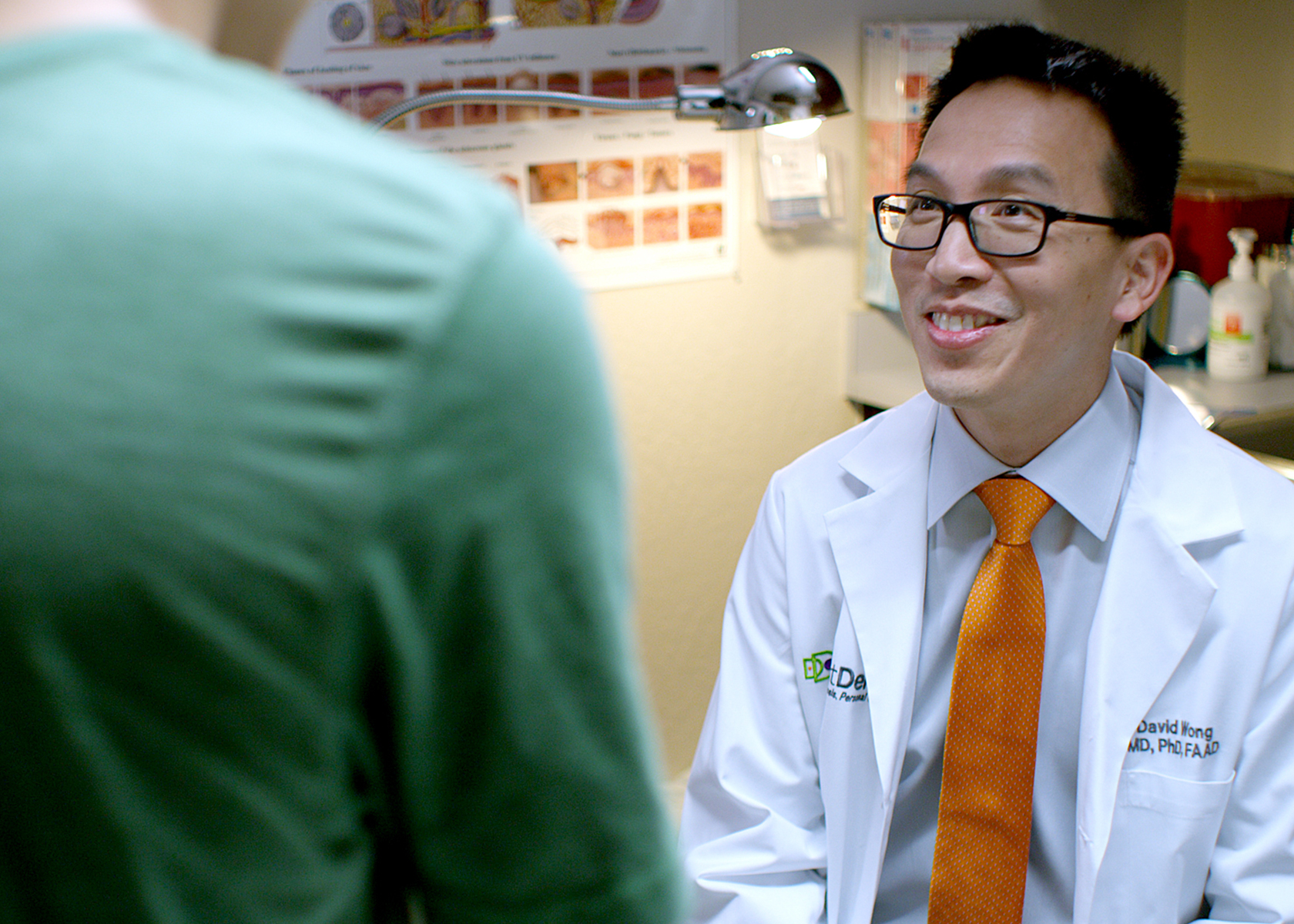
10 Questions You Should Ask When Choosing a Dermatologist
 At DirectDerm, we believe that the quality of a dermatology service is rooted in the training, experience and skills of the dermatologist – whether in person or in a virtual setting.
At DirectDerm, we believe that the quality of a dermatology service is rooted in the training, experience and skills of the dermatologist – whether in person or in a virtual setting.
Whether considering virtual dermatology care or services in a brick-and-mortar clinic, we encourage patients and providers to investigate their options so they can make an informed decision.
Here are 10 questions we suggest as a starting point.
- Will my care be provided by a board-certified dermatologist? Where did your dermatologists receive their training? Are they licensed to practice in my state?
- If I give my permission, will the dermatologist work with my primary care physician or other healthcare providers and share my medical information with him or her? Do you comply with HIPAA standards for sharing and confidentiality?
- Besides photos of my skin problem, do you also require my medical history and a description of my condition and symptoms?
- After the initial assessment, will I have access to the dermatologist so I can ask follow-up questions?
- What happens if I have something serious – like skin cancer? Or what if I need surgery or other intensive in-person follow-up? Can you refer me to a qualified expert in my area?
- How soon will I receive a diagnosis and treatment plan after I have submitted my information?
- Are your services covered by my insurance?
- What if my skin problem needs to be evaluated by a subspecialty expert, such as someone who specializes in skin cancer or pediatric skin problems?
- What if I need a prescription? How can I be sure it won’t interact with something I’m already taking?
- Where can I go to find an independent, objective overview of your physicians? For example, are your doctors profiled on HealthGrades?
At DirectDerm, we believe that the quality of a dermatology service is rooted in the training, experience and skills of the dermatologist – whether in person or in a virtual setting.

 Sunscreens are a key component to your daily sun protection regimen to decrease your risk of skin cancer and reduce the effects of skin aging.
Sunscreens are a key component to your daily sun protection regimen to decrease your risk of skin cancer and reduce the effects of skin aging.